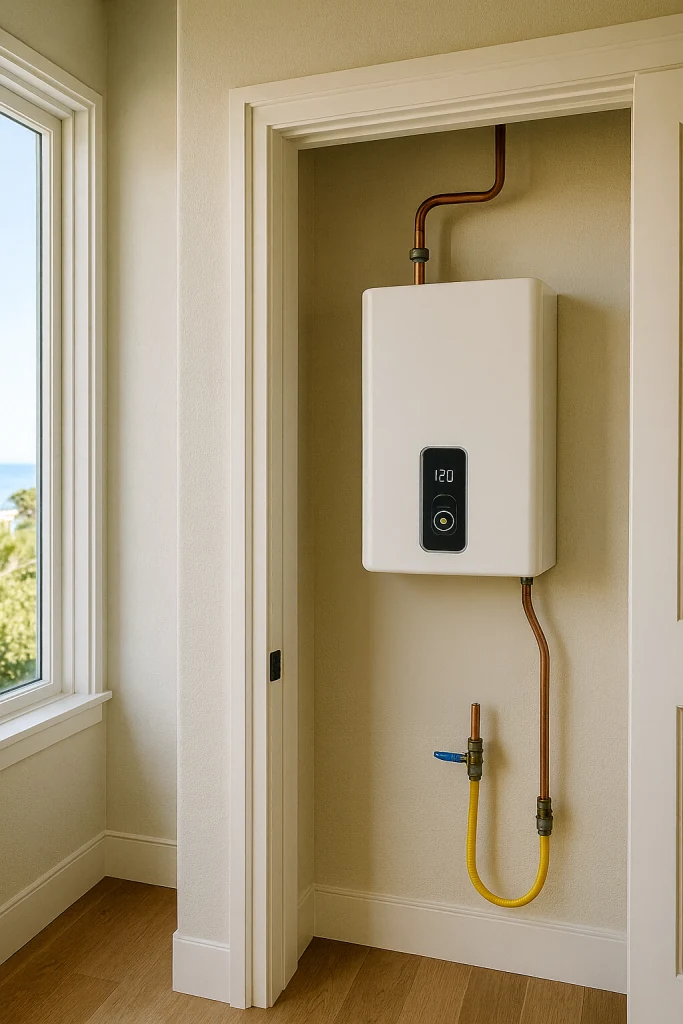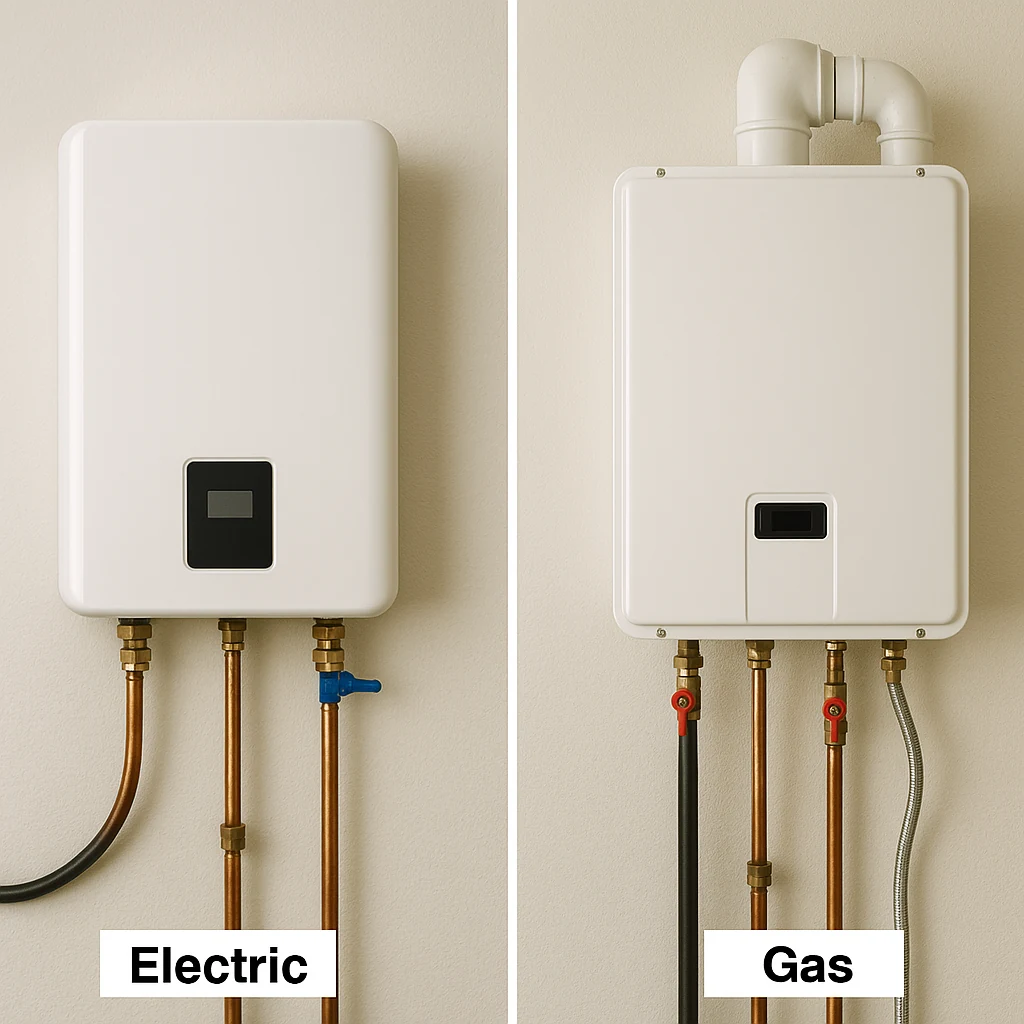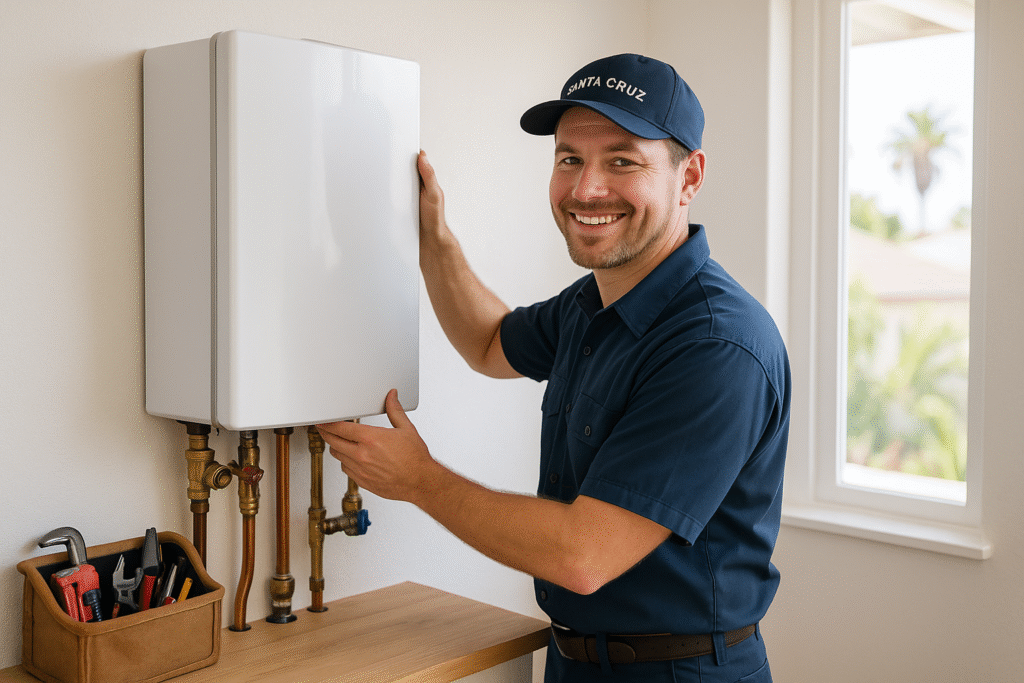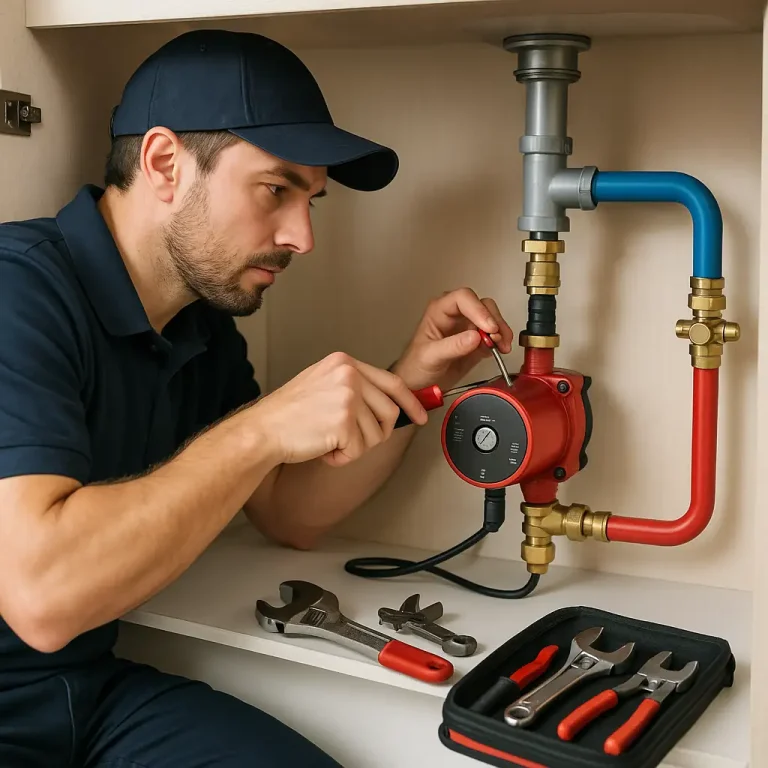
Electric water heaters are essential appliances in modern households, providing a consistent supply of hot water for daily tasks such as bathing, cooking, and cleaning. Unlike gas water heaters, electric water heater information rely solely on electricity to heat water, which offers unique advantages and considerations for homeowners. Understanding how they work, their types, and maintenance requirements is crucial for choosing the right system and ensuring long-term efficiency.
What Is an Electric Water Heater?
An electric water heater is a device designed to heat water using electrical energy. It typically consists of a storage tank, one or two heating elements, a thermostat to control water temperature, and safety devices such as pressure relief valves. When you turn on a hot water tap, cold water enters the tank, and the thermostat activates the heating elements to bring the water to the desired temperature. This setup ensures a steady supply of hot water whenever you need it.
Electric water heaters are highly versatile and can be adapted to various household sizes and energy requirements. They are commonly found in homes, apartments, and even small commercial establishments. One of the major benefits is that they do not require venting like gas water heaters, making installation simpler in many locations.
Types of Electric Water Heaters
- Storage Water Heaters: These traditional tank-style heaters store a large volume of hot water for immediate use. They are ideal for households with multiple occupants, as they can supply hot water to several taps simultaneously. Storage tanks come in different capacities, typically ranging from 20 to 80 gallons, depending on household needs.
- Tankless (On-Demand) Water Heaters: Tankless electric water heaters heat water only when it is needed, eliminating the need for a storage tank. This feature makes them more energy-efficient and compact, saving both space and energy costs. They are perfect for homes with limited space or those looking to reduce energy consumption. One consideration is that tankless units may require an upgrade in electrical wiring due to higher power demands.
- Heat Pump Water Heaters: Heat pump water heaters transfer heat from the surrounding air into the water, which makes them highly energy-efficient. They are more environmentally friendly and can lower electricity bills significantly. These systems work best in warmer climates, as they rely on ambient air temperature to function effectively.
- Point-of-Use Water Heaters: These small units are installed close to the tap or shower where hot water is needed. They provide instant hot water, reducing wait times and minimizing water wastage. Point-of-use heaters are particularly useful in large homes or areas where extending hot water pipes would be inefficient.

Benefits of Electric Water Heaters
- Energy Efficiency: Electric water heaters are typically more efficient than gas units because they do not lose heat through venting.
- Safety: Without the use of combustible gases, they eliminate risks of gas leaks and carbon monoxide poisoning.
- Environmental Impact: When paired with renewable energy sources like solar panels, electric heaters can significantly reduce carbon emissions.
- Lower Upfront Costs: Electric water heaters generally cost less to install than gas systems, making them accessible for most homeowners.
Considerations and Drawbacks
- Operating Costs: Although installation is cheaper, electricity rates can make running these heaters more expensive than gas heaters in certain regions.
- Slower Heating Time: Tank-style electric heaters may take longer to heat water compared to gas systems.
- Power Dependency: Electric water heaters cannot function during power outages, unlike gas heaters, which can sometimes operate independently.
Installation and Maintenance Tips
- Professional Installation: Hiring a licensed electrician or plumber ensures proper installation, compliance with local codes, and long-term safety.
- Regular Maintenance: Flushing the tank periodically to remove sediment improves efficiency and prolongs lifespan.
- Monitor Performance: Watch for signs like inconsistent water temperature, strange noises, or leaks, which may indicate maintenance or repairs are needed.

Maximizing Efficiency and Longevity
To get the most out of your electric water heater:
- Insulate the Tank: Adding insulation can reduce heat loss and energy costs.
- Set Appropriate Temperatures: Maintaining the thermostat at around 120°F ensures safety while saving energy.
- Install Timers: For households with predictable hot water usage patterns, timers can prevent unnecessary heating.
- Upgrade When Needed: Older electric water heaters may be less efficient. Upgrading to a modern, high-efficiency model can save money in the long run.
Conclusion
Electric water heaters provide a reliable, safe, and energy-efficient solution for meeting a household’s hot water needs. By understanding the various types, benefits, and considerations, homeowners can make informed decisions that align with their needs and budget. Whether opting for a tank-style unit, a tankless system, or a point-of-use heater, proper installation, regular maintenance, and mindful usage can maximize efficiency and extend the appliance’s lifespan.
